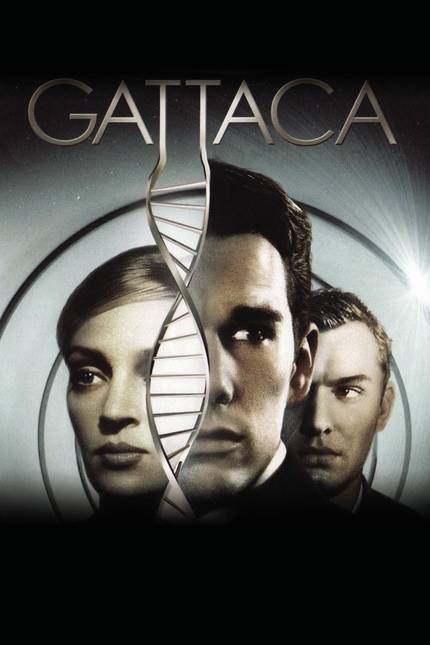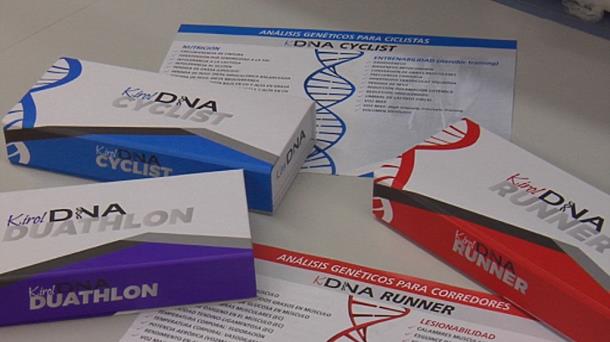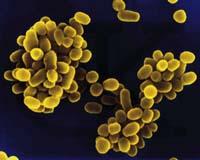Genetic dystopias: so close, so far
2019/03/01 Garcia Etxebarria, Koldo - Genetikan doktoreaEHUko Genetika, Antropologia Fisikoa eta Animalia Fisiologia saila Iturria: Elhuyar aldizkaria

Dystopias are a literary genre in which the future is represented with concern. This exercise is nothing more than an excuse to reflect on society and technology, to discover where the discoveries of a given moment or its uses can take us. And genetics and its advances have also fostered reflections on humanity and society.
The novel Bai mundu berria (Aldous Huxley, 1932) is a classic science-fiction and dystopia work. It describes a society without worries and healthy and divided into castes. Depending on the genetic capabilities, the incubated embryos are classified into one or another caste and grow and educate to perform the tasks proper to each caste: While Alfe carries out works of great intelligence, Epsilon performs the hardest physical works. In this way, Huxley reveals very crudely the extreme use of eugenics. In the case of this author, it is not surprising that eugenics is used to represent a dystopian world, since Huxley knew genetics and evolution closely: Thomas Henry Huxley, Aldous’s grandfather, was a fervent defender of Darwin’s theory of evolution, so he was called “Darwin’s bulldoge.” Sir Julian Huxley, brother of Aldous, was the first director general of UNESCO and, although surprising today, he was also president of the British Eugenic Society, in which contributions received from different fields were used to update Darwin’s theory, all of them called “Modern Synthesis” (which is also due to Julián Huxley).
In the cult film Gattaca (Andrew Niccol, 1997) we are presented with a society built under the influence of eugenics. At birth, a genetic test is performed for newborns to establish their future. Therefore, parents use genetic manipulation to create the best embryos from their genetic material. Therefore, children born randomly, that is, those born by sex, have more difficulties and discriminate them when accessing work or insurance.
Although between both works there is an interval of 65 years, both speak of eugenics, genes as an inevitable destination and genetic manipulation. Two different times but concerns about the discoveries of genetics. Unfounded fears or good prospects of the present?
It is no coincidence that Huxley is concerned about eugenics. XX. In the 30s of the 20th century, this movement had a great force, even within science, since it had an attractive discourse: by inheriting characteristics (genetically), harmful characteristics should not have offspring, so those harmful characteristics would disappear from the species to achieve greater humanity. Several governments, like some U.S. states, enthusiastically took up this doctrine and launched mandatory sterilization programs. At that time, rather than ending dystopia in an eugenics, he worried that they would not live in a eugenic reality. The horror of Nazi experiments accentuated awareness of eugenics and caused the decline of ideas that we consider today to be unethical, although it cost. We can think that it is a thing of the past that has already been overcome and that, therefore, it has been avoided to end in one of those dystopias.
However, even though the scientific community has made clear its stance on this issue, we continue to collect news that can generate concern. For example, it has just been known that occult eugenics meetings have been held at University College London in the last three years. This university has launched a study to clarify what has happened, as it has generated great concern in the organization's facilities. On the other hand, in some cultures and societies some characteristics, often genetic, are considered curses. Therefore, if you have the opportunity to choose the characteristics of your embryos, you will avoid those damn characteristics. We can consider it a secret, subtle eugenics, but in the end eugenics.
This possible suitability of characteristics is closely related to the consequences that can be derived from genetic information. In these dystopian worlds, genes establish what a person can do, genes are used to classify people as an inevitable destiny.
However, biology is not so simple or so simple. Except for a few characteristics and/or diseases, the relationship between genetic material and characteristics and/or diseases is not entirely direct. Not even concrete. It is increasingly evident that interactions between genes, gene control processes and the genome's own physical structure (the set of components that form the genetic material) influence complex characteristics. Some researchers have come to propose that certain omnigenic traits are caused, in one way or another, by practically the entire genome. This inevitably forces us to know in depth all the components of the genome and to understand all possible interactions (between genes, physical and with the medium) to predict anything from the genetic material. And we are still far from that scenario.
Therefore, we could say that we are far from dystopias based on living under the dictatorship of genes. But there are dangerous signs. For example, genetic self-analysis kits are spreading more and more. They seem small harmless, but they help define a wrong idea, because genes mark our destiny. In addition to taking the results of these kits carefully, the concept of them should also be carefully taken. After all, it is related to the suitability of the aforementioned genetic characteristics and the feeling that the fate of genes is inevitable: we are the genetic material that we have to delimit.
Genetic manipulation in science fiction is often used to overcome these possible genetic limits. In reality, genetic manipulation is also an issue that raises dust, it seems that imagination goes faster than research. The new tools that have been recently obtained for the genomic edition have made the theme fashionable again. We may soon have another dystopia focused on the subject. But when it comes to technologies based on the current edition or technologies based on the recombination of the 1990s, the concern is the same: How far can the ability to change genetic material go? Imagination can build countless terrifying scenarios, but at the moment these technologies have not reached the foreseen. As mentioned above, biology is not so simple or so simple. In the short term, we don't seem to have the ability to change genetic material in any way. Therefore, the monsters resulting from genetic manipulation are limited to the realm of imagination. For now.
In any case, despite the limitations, genetics will continue to advance: we will better understand the functioning of genomes and improve the ability to make genetic changes. Discoveries will be made to represent new dystopias. Therefore, the debate on the limits of this information, capabilities and discoveries must overcome the scientific world and extend to the whole of society, such as expansive waves. It is possible that the development of this type of technology is in the hands of experts, but it is the responsibility of all to determine its uses and limitations to, instead of ending up in a genetic dystopia, imagine a genetic utopia.
Bibliography
Work presented to the CAF-Elhuyar awards.

Gai honi buruzko eduki gehiago
Elhuyarrek garatutako teknologia







